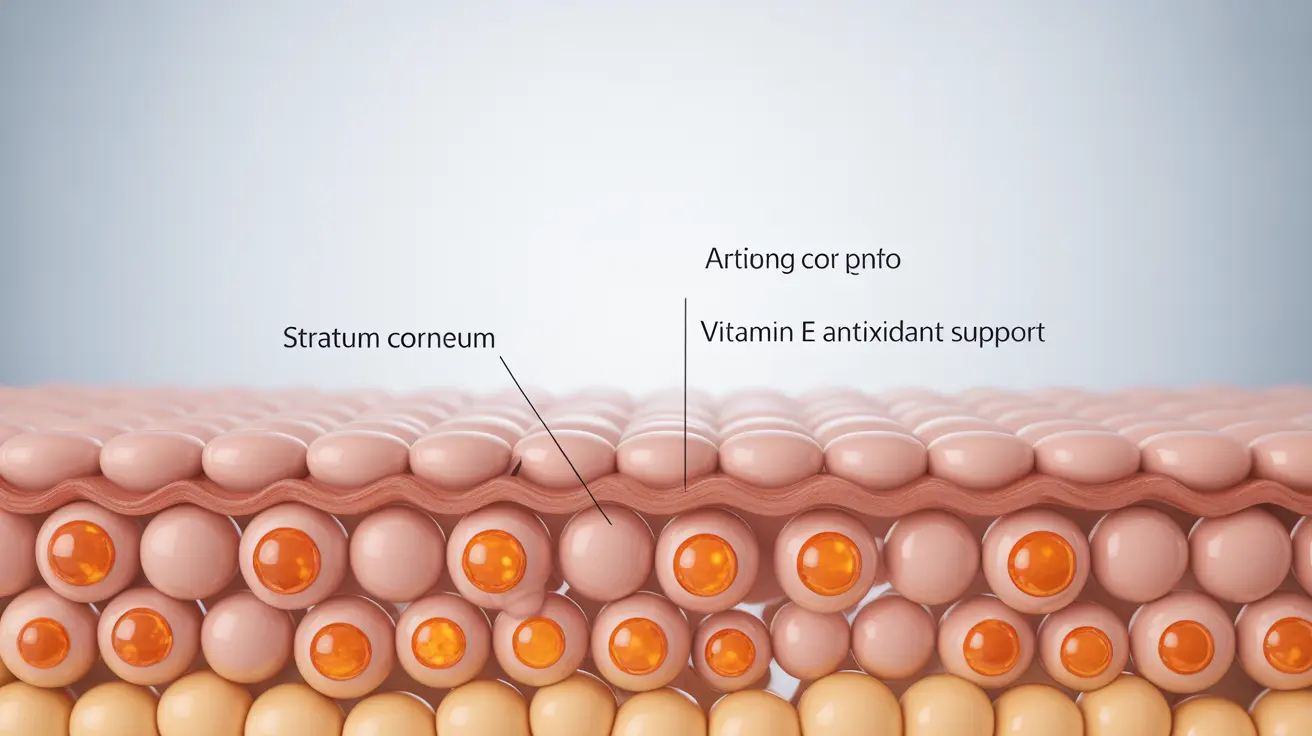Many people searching for natural acne remedies have wondered about using vitamin E to combat breakouts and improve skin health. This essential nutrient plays important roles in skin repair and protection, but its effectiveness specifically for acne requires a closer look at the scientific evidence.
In this comprehensive guide, we'll explore how vitamin E may affect acne-prone skin, examine proper usage methods, and discuss what the research really says about its benefits for treating active breakouts and acne scars.
Understanding Vitamin E and Skin Health
Vitamin E is a fat-soluble antioxidant that helps protect skin cells from oxidative stress and environmental damage. It exists in several forms, with alpha-tocopherol being the most biologically active version for human skin. While vitamin E occurs naturally in many foods, it's also commonly found in skincare products and supplements.
How Vitamin E May Help with Acne
Antioxidant Properties
As an antioxidant, vitamin E helps neutralize free radicals that can contribute to skin inflammation and damage. This anti-inflammatory effect may help reduce the redness and irritation associated with active acne breakouts.
Skin Barrier Support
Vitamin E supports the skin's natural barrier function, which can help maintain proper moisture levels and protect against environmental stressors that might worsen acne. A healthy skin barrier is essential for managing acne-prone skin effectively.
Potential Risks and Considerations
Oil-Based Nature
Vitamin E oil is relatively thick and can be comedogenic for some people. Those with oily or acne-prone skin should be particularly cautious when applying vitamin E topically, as it might clog pores and potentially worsen breakouts in some cases.
Skin Sensitivity
Some individuals may experience irritation or allergic reactions to topical vitamin E. Always perform a patch test before applying vitamin E products to your face, especially if you have sensitive skin.
Best Practices for Using Vitamin E
Topical Application
If you choose to use vitamin E topically, start with a diluted form or products that contain vitamin E as part of a balanced formulation. Apply a small amount initially and observe how your skin responds before increasing usage.
Dietary Sources
Getting vitamin E through your diet may be safer than topical application for acne-prone skin. Good sources include:
- Nuts and seeds
- Vegetable oils
- Leafy green vegetables
- Avocados
Alternative Acne Treatments
While vitamin E may have some benefits, other proven acne treatments often show more consistent results:
- Salicylic acid
- Benzoyl peroxide
- Retinoids
- Niacinamide
- Alpha hydroxy acids (AHAs)
Frequently Asked Questions
Does vitamin E help improve acne when used topically or orally?
Vitamin E may help reduce inflammation and support skin healing when used either topically or orally. However, scientific evidence specifically supporting its use for acne treatment is limited. Some people may benefit from its antioxidant properties, while others might experience increased breakouts from topical application.
How should I use vitamin E oil safely on acne-prone skin without causing irritation?
Start with a patch test and use products containing diluted vitamin E or vitamin E combined with other non-comedogenic ingredients. Apply sparingly at night, and discontinue use if you notice increased breakouts or irritation. Consider using vitamin E-enriched moisturizers rather than pure vitamin E oil.
Can vitamin E reduce acne scars or help heal skin after acne?
While vitamin E supports general skin healing, research on its effectiveness for acne scars is mixed. Some studies suggest it may help reduce the appearance of scars when combined with other treatments, but it shouldn't be relied upon as a primary scar treatment.
Are vitamin E supplements effective for treating acne, or is dietary intake more important?
Dietary intake through whole foods is generally the safest and most beneficial way to ensure adequate vitamin E levels. While supplements can help address deficiencies, there's limited evidence supporting their use specifically for acne treatment.
What are the best acne treatments compared to vitamin E for managing breakouts and inflammation?
Clinically proven acne treatments like benzoyl peroxide, salicylic acid, and retinoids typically show better results than vitamin E alone. These ingredients directly target the causes of acne, including excess oil production, bacteria, and cell turnover. Consider using these as your primary acne treatments, with vitamin E potentially playing a supporting role in your skincare routine.




